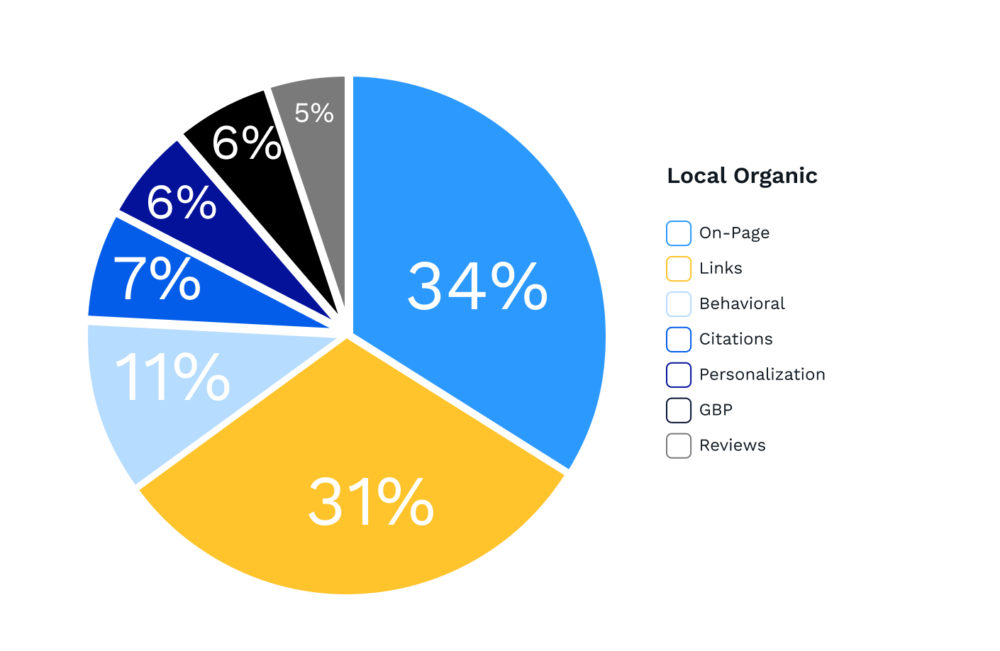Google’s Local Ranking Factors Explained
Google’s local search algorithm is designed to connect users with the most appropriate local businesses for their needs. The system relies on three core factors—relevance, distance (proximity), and prominence—to determine which businesses appear in local search results and the Google Maps pack.
Relevance
Relevance measures how well a business matches what a user is searching for. Google assesses whether your business offers the products, services, or information that align with the search query. Key elements that influence relevance include:
- Business categories: Selecting specific, accurate categories in your Google Business Profile (GBP) helps Google understand your offerings.
- On-page content: Keywords and content on your website that match local search intent improve relevance.
- User-generated content: Reviews and Q&A on your GBP provide additional signals about what your business does and how well it meets customer needs.
- Citations and backlinks: Consistent business information across directories and quality backlinks reinforce your business’s relevance to certain queries.
To maximize relevance, ensure your GBP and website content are detailed, accurate, and aligned with the services or products you provide.
Distance (Proximity)
Distance refers to how close your business is to the user’s location (or the location specified in their search). Proximity is a critical factor, especially for searches with clear local intent (e.g., “coffee shop near me”).
- Physical location: The closer your business is to the searcher, the higher it is likely to rank, all else being equal.
- Accurate NAP: Ensure your Name, Address, and Phone Number (NAP) are consistent and correct across all online listings to help Google accurately determine your location.
- Limited control: Unlike relevance and prominence, businesses have little direct control over proximity, as it depends on the user’s location.
Prominence
Prominence reflects how well-known or important your business is, both online and offline. Google uses several signals to assess prominence:
- Reviews and ratings: A higher number of positive reviews and better ratings can significantly boost your local ranking.
- Backlinks and citations: Mentions of your business on reputable websites, news articles, and local directories contribute to prominence.
- Brand recognition: Well-known brands or businesses with a strong offline presence often rank higher due to their established reputation.
- Organic search presence: Your position in regular (non-local) Google search results also influences local rankings.
To improve prominence, focus on building a positive online reputation, encouraging customer reviews, and earning quality backlinks and citations.
How These Factors Work Together
Google’s algorithm weighs all three factors—relevance, distance, and prominence—together to determine local rankings. For example, a business that is highly relevant and prominent may outrank a closer business with weaker signals in those areas. There is no single “most important” factor; the combination determines your visibility in local search results.
Practical Steps to Improve Local Rankings
- Optimize your Google Business Profile: Complete every section, choose precise categories, upload high-quality photos, and keep information up to date.
- Encourage and manage reviews: Respond to reviews, both positive and negative, and actively seek new feedback from customers.
- Ensure NAP consistency: Keep your business name, address, and phone number consistent across all online platforms.
- Build local citations and backlinks: Get listed in reputable directories and earn links from local websites.
- Create relevant, local content: Publish content on your website that addresses local needs and includes location-specific keywords.
Summary Table
| Factor | What It Means | How to Improve |
|---|---|---|
| Relevance | How well your business matches the query | Accurate categories, detailed content, reviews |
| Distance | Physical proximity to the searcher | Accurate NAP, multiple locations (if applicable) |
| Prominence | How well-known/important your business is | Reviews, backlinks, citations, brand strength |
Conclusion
Understanding and optimizing for relevance, distance, and prominence is essential for any business aiming to improve its local search visibility. While you can’t control where your customers are located, you can influence how Google perceives your business’s relevance and prominence through careful optimization of your online presence.





